Essential Life Lessons Missing from Our School Education
Written on
Reflecting on School Memories
When reminiscing about your school years, what stands out the most? Is it the architecture of the school, a teacher that left a mark, or the friendships you forged? Likely, the actual subjects—reading, writing, mathematics, and science—aren't the first things that come to mind, despite being fundamental components of our education.
We also acquire social skills that shape us into responsible citizens. Early on, we learn to take turns, queue patiently, and work in groups. As we mature, lessons in cooperation and teamwork become vital, but we also face challenges like peer pressure and interpersonal conflicts.
While school provides both academic and social growth, it often falls short in equipping us for the real-world challenges we encounter after graduation.
Albert Einstein once remarked,
“Education is not the learning of facts but the training of the mind to think.”
This suggests that while we may gather a wealth of information, there's much more we should have learned.
1. Cultivating Independent Thought
Understanding how to think independently goes beyond rote memorization of facts. It involves forming your own opinions and making decisions based on personal insights. Embrace curiosity and question everything. Regularly reassess your beliefs, and remain open to alternative perspectives. By honing critical thinking skills, you can base your decisions on factual evidence, adapting as new information arises.
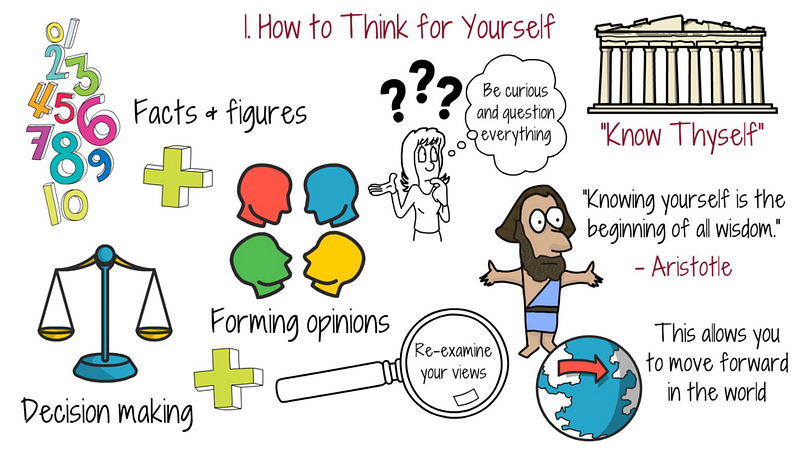
The ancient wisdom “Know Thyself” emphasizes self-awareness as the foundation for sound judgment. Philosopher Aristotle asserted,
“Knowing yourself is the beginning of all wisdom.”
This quality is fundamental for making informed decisions and pursuing fulfilling goals. Merging this insight with what we've learned academically allows us to carve our own paths in life.
2. The Power of Mindset
Marcus Aurelius noted,
“The Happiness of your life depends on the quality of your thoughts.”
Your mindset shapes your reality. If you perceive life as restrictive, you'll likely encounter limitations. Conversely, if you view it as brimming with possibilities, opportunities will present themselves.
Some adopt a scarcity mindset, fixating on lack and fostering traits like greed. This leads them to hoard resources for a false sense of security. In contrast, those with an abundance mindset see a world filled with opportunities, enabling them to pursue goals without fear of loss.
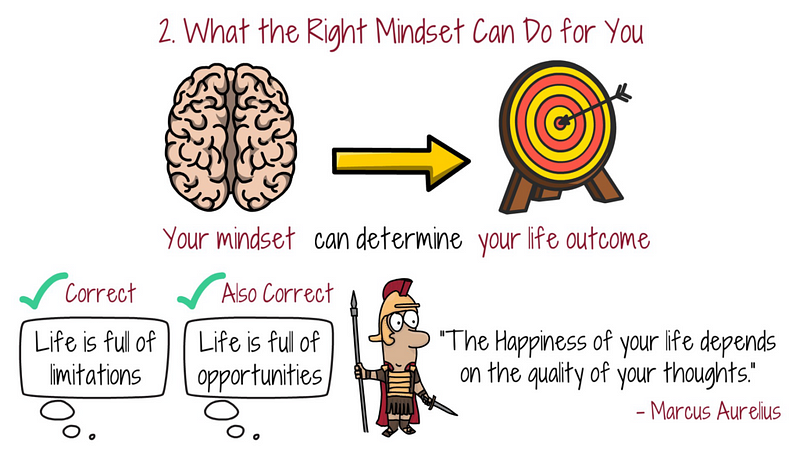
3. Redefining Failure
In school, it’s easy to gauge success or failure by comparing yourself to classmates. In the broader world, however, mistakes are merely stepping stones to growth. Musician Jon Bon Jovi said,
“Success is falling nine times and getting up ten.”
Mistakes can guide you to new paths rather than define you.
Inventor Thomas Edison famously stated,
“I haven’t failed. I’ve just found 10,000 ways that won’t work.”
By reframing failure as a teacher, you can draw inspiration instead of discouragement. Recognizing that setbacks are temporary allows you to navigate challenges with resilience.
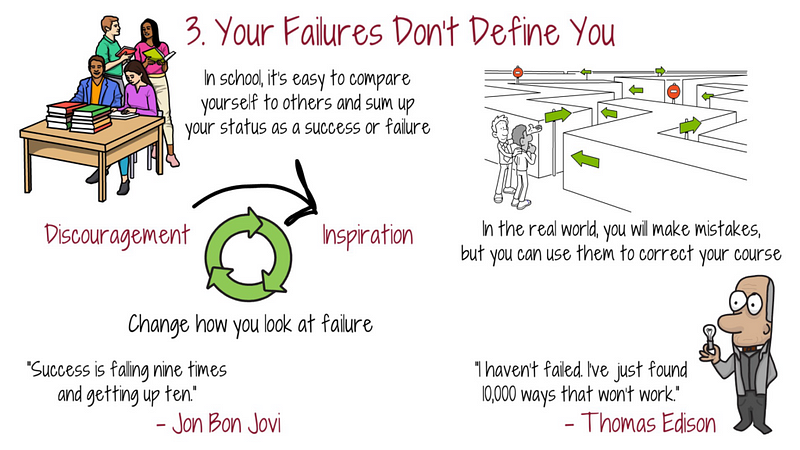
4. Building Resilience
Understanding that failures are as crucial as successes fosters resilience. Challenges are inevitable; preparing for them helps you manage life's hurdles. Mark Desvaux wrote,
“If we welcomed problems as a daily part of life, we’d spend less time being surprised by them and more time dealing with them.”
School often overlooks the necessity of embracing challenges. By accepting that obstacles arise and having strategies in place, you enhance your capacity to cope.
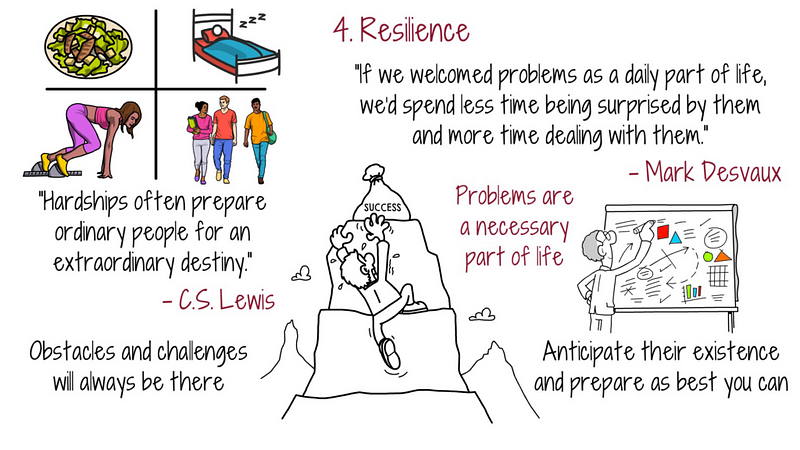
5. Embracing Uncertainty
Uncertainty was a common feeling during school, but it continues throughout life. While having goals is important, remaining adaptable to unexpected changes is essential. Nicole Reed stated,
“Sometimes the bad things that happen in our lives put us directly on the path to the best things that will ever happen to us.”
Plans may evolve, and what initially seems like a setback could lead to new opportunities.
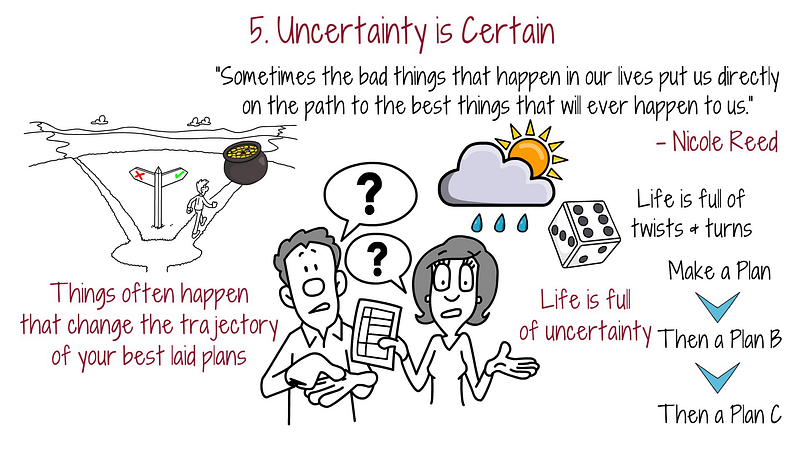
6. The Importance of the Present
In school, the focus often shifts to future aspirations. However, the present moment deserves equal attention. If you’re overly concerned about where you’ll be in the coming years, you may overlook the significance of now. Engaging fully in the present enhances your awareness and enriches your life experience.
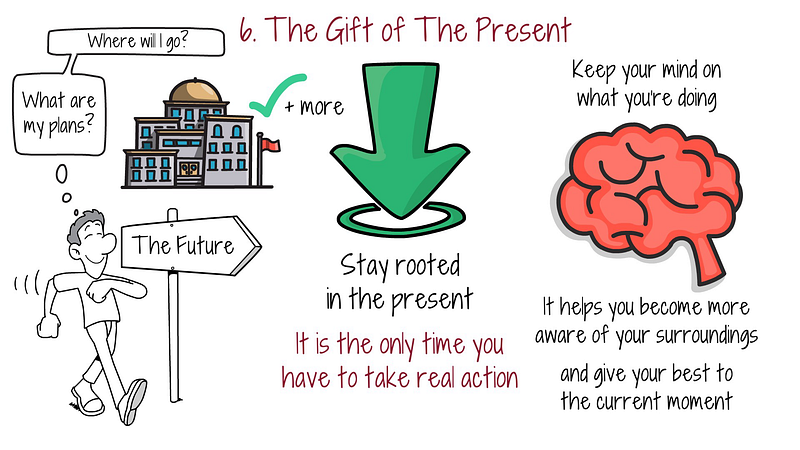
While the education we receive is undeniably valuable, there are many lessons that elude us. Whether it’s due to unaddressed topics or our own inattentiveness, life invariably teaches these essential lessons. Ultimately, the journey of learning continues indefinitely.
The first video, "What We Should Have Learned in School But Never Did," explores critical knowledge and skills often overlooked in traditional education.
The second video, "Which Life Skills Do You Wish You Had Learned in School?" invites viewers to reflect on personal experiences and the skills they wish had been part of their education.